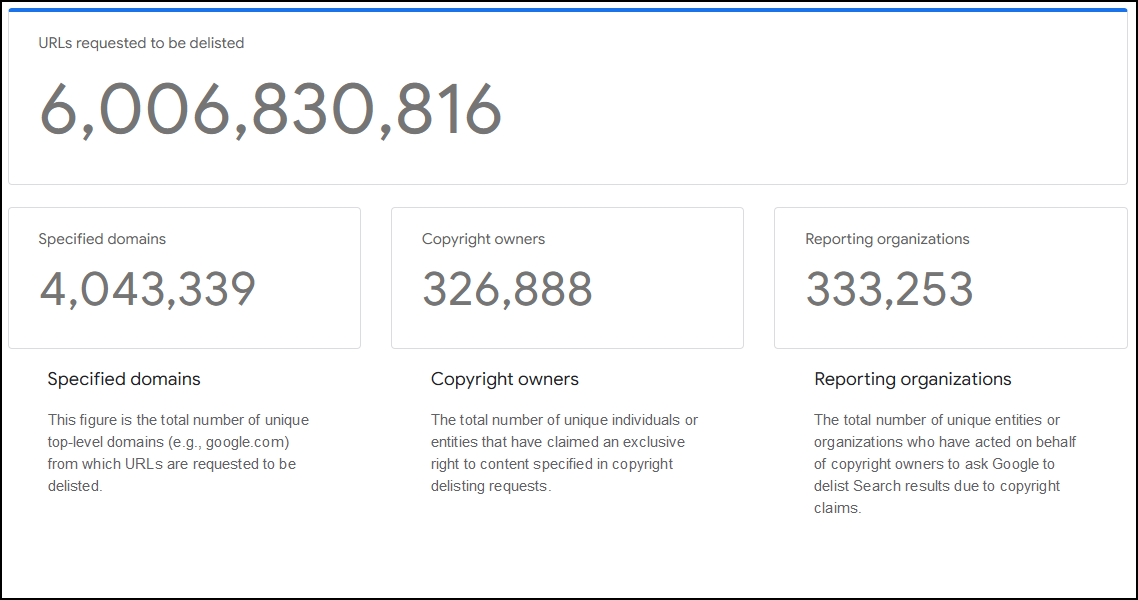In a nutshell: Takedown requests from copyright holders have reached an all-time high of six billion URLs. So Google is working with content owners to blacklist rights-infringing websites before its algorithms can even index them. As a result, the search giant has removed billions of results linking to pirated materials.

Requests for content delisting from Google Search results recently reached an unprecedented milestone, passing the six-billion mark and highlighting the company's strong will to cooperate with rightsholders. Mountain View regularly receives takedown orders on alleged pirate links from its earch index. Google grants the requests after a careful review of their validity.
Google's policy on copyright infringement, as outlined on its Transparency Report page, is consistent with the infamous Digital Millennium Copyright Act (DMCA) and "provides a simple and efficient mechanism for copyright owners from countries/regions around the world." A copyright owner can send Google a takedown notice about an alleged pirate link, and Google will remove the offending content from its search results if there are no issues.
Google has received 6,006,830,816 requests to delist from 326,888 rightsholders. It has granted the majority of those. Of the more than six billion results, 4,043,339 were top-level domains. Requests from organizations acting on behalf of its rights-holding clients totaled 333,253.

The ten most active organizations have collectively reported nearly 2.5 billion URLs, more than 40 percent of the total requests. Interestingly, only 400 domains are responsible for 41 percent of Google's entire delisting activity. In other words, almost half the takedowns are on sites that regularly host infringing content like The Pirate Bay and others. Aside from dedicated pirating hosts, delisting requests sent to Google have included blatant false positives like websites of The White House, the FBI, Disney, Netflix, and others.
The numbers provided by Google indicate that the most popular internet search engine — and one of the largest tech companies ever — has a positive relationship with content owners and copyright holders. It's a reverse of the times when the company actively opposed any third-party efforts to limit web indexing. Now, Google is working voluntarily with those third parties and accepting takedown requests for links that aren't even indexed by the search engine yet.
Google offers copyright holders a preemptive blocklist to prevent pirate links from being added to search results in the future. The once-important issue about free "access to information" is now just a tiny side note at the end of the content delisting page. Data provided there "helps inform global conversations on the way copyright impacts access to information." Google says there are still active "discussions with policymakers around the world on how to best fight online piracy and connect users with legitimate content."
https://www.techspot.com/news/96215-google-delisted-six-billion-alleged-pirate-links-ten.html